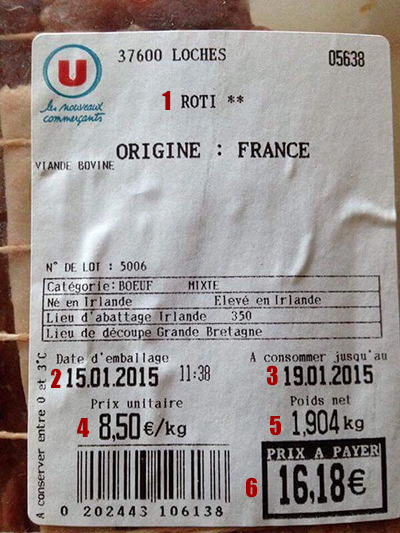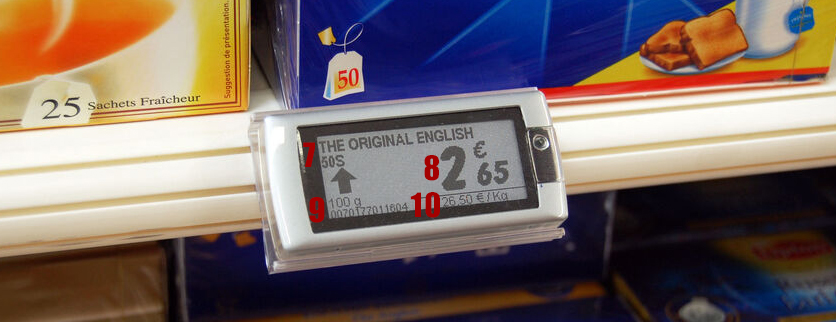Learn French in manila
Food shopping in France : a quick guide to French grocery stores
There are many different supermarket chains in France, and the first thing you’ll notice when you step inside is the size of the packaging. In France, everything is generally bigger: pasta, cakes, fruit and vegetables. Individually-packed shampoos, toothpaste, or the like, are extremely rare, if not non-existent.
You’ll also notice that the prices per kilo or liter are generally lower for a wide range of products. When you’re shopping, you’ll see the price of the product, but more importantly, the price per kilo, and it’s this price that you should look at in order to choose and buy your products in the most economical way possible, because you shouldn’t base your choice on the size of the packaging but on the weight of the container. All this helps to avoid being ripped off by false promotions.
To understand this a little better, let’s take a look at the example of a label from a tray of fresh meat. We won’t see all the information, but what interests us most as tourists is the price and one or two other interesting pieces of information.

- 1. Meat cut designations
- 2. Date the product was packed
- 3. The product’s use-by date
- 4. Price per kilo
- 5. Product weight
- 6. Total price to pay
Let’s take the example of a price tag for tea bags

- 7. Product name
- 8. Total product price
- 9. Total product weight
- 10. Price per Kg
Here’s a list of the main superstores you’re likely to find on your way. First, here are the so-called hard-discount chains.

To do your shopping, we recommend going to the hard-discount stores such as Aldi and Lidl, as these two chains generally offer the cheapest prices on a wide range of products. These stores also exist in other parts of Europe.

Then, if you find the choice too limited, you can go to the E.leclerc chains, which offer more choices, a wider variety of brands and more services. You’ll find great prices, especially with the “Repère” brand, E. Leclerc‘s discount private label. (If you are a Filipino, Repère is like the SM Bonus equivalent.)
Here’s a little tip : supermarkets often have a bin full of products, mostly fresh, on special offer. Products that have a short expiry date and are about to expire can be discounted by 20, 30, 40% or even more.
As supermarkets are often closed on Sundays, it’s highly likely that products such as meat will perish on Sundays, so don’t hesitate to visit them late on Saturday afternoon for a chance to grab some bargains.

Auchan, Carrefour, Casino / Géant, Match, Intermarché : We don’t recommend shopping in these three stores because, apart from a selection of products, prices are generally much more expensive than the Aldi, Lidl and E.Leclerc.
Another point to know is that in France there are no convenient stores. This concept does not exist. The only thing that can come close to the concept (and by a long way) are shops like Carrefour, Monoprix, SPAR and Vival, or small épiceries which are useful for night groceries and urgent needs but are generally more expensive than a supermarket.

You’ll find many branches of the Carrefour brand, including Carrefour Market, Carrefour Contact, Carrefour City and Carrefour Express. The advantage of these Carrefour stores is that you can usually find them close to home, offering the essentials for everyday life. Some also offer services such as receive your Amazon packages for you. Their prices however are very high.
For fruits and vegetables, we suggest buying from the local market if possible. Some cities or bigger towns have market days twice a week. Not only is this more economical, it is also better for the environment. Plus, you will also be able to practice your French better.
In most cities, you will also be able to find Asian stores. In Paris, there are a few Filipino stores as well. While you may find soy sauce, fish sauce (patis), or chili oil in big supermarkets, you will probably only find tamarind soup (sinigang) mix or instant pancit canton in Asian stores. Note however that since these are imported from Asia, they can also be quite expensive.